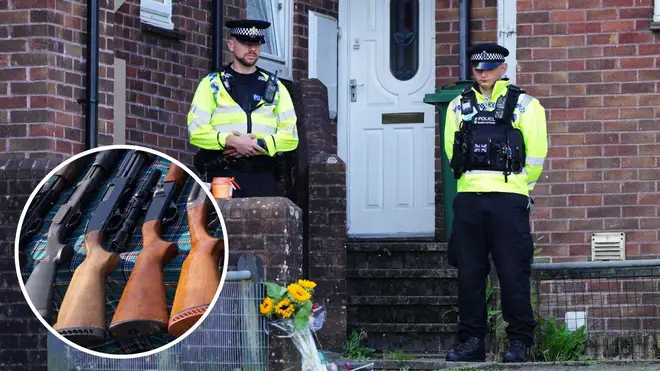
Tom Swarbrick 4pm - 7pm
20 October 2021, 19:22

Medical history will now need to be checked before someone gets a gun licence, as the Government looks to tighten laws following the Plymouth shooting.
Five people were killed as Jake Davison launched his rampage before turning the gun on himself.
The killing led to questions about how the 22-year-old was allowed to get a licence after he received mental health support during lockdown, and easy-to-find social media posts suggested an obsession with "incel" culture and firearms.
All applications will need a medical document from November 1, signed by a registered, practising doctor.
Any relevant health records, especially regarding mental health, neurological conditions and substance abuse – will need to be looked at, the Home Office has said.
The measures mean police will be legally required to follow the guidance for the first time.
Read more: Plymouth shootings: Police staff handed disciplinary notice over gunman's licence

Priti Patel praises emergency services' response to Plymouth shooting
Officers have also been told to review social media accounts and financial history, as well as whether an applicant has a history of domestic violence.
Home Secretary Priti Patel said: "This new guidance prioritises public safety above all else and we have taken considerable care to ensure it is comprehensive and enforceable, having worked closely with the medical, policing and shooting sectors."
Davison, an apprentice crane operator, accessed mental health support during lockdown by using a local telephone helpline.
He also appeared to have an obsession with "incel", or "involuntarily celibate", culture – which has been linked to acts of violence in the US – as well as an interest in guns.
The Independent Office for Police Conduct (IOPC) is investigating the decision by the Devon and Cornwall force to return Davison's shotgun certificate and weapon to him.
They were seized last year after an assault allegation made the previous September but returned in July.
Debbie Tedds, the Chief Constable for Warwickshire Police who leads the National Police Chiefs' Councils' work on firearms licensing, welcomed the guidance and said: "Policing take this matter incredibly seriously and any advancement on the already extensive checks will help to ensure that only those who are safe to carry a firearms licence will receive one."
The British Association for Shooting and Conservation (BASC) said while the guidance "will allow applicants to choose who completes their medical verification if their GP states they are opposed to shooting or insists on excessive fees", they warned that "flaws remain" in the process and urged the Government to "listen again to those who want a pragmatic, cost-efficient licensing system that is fit for purpose."